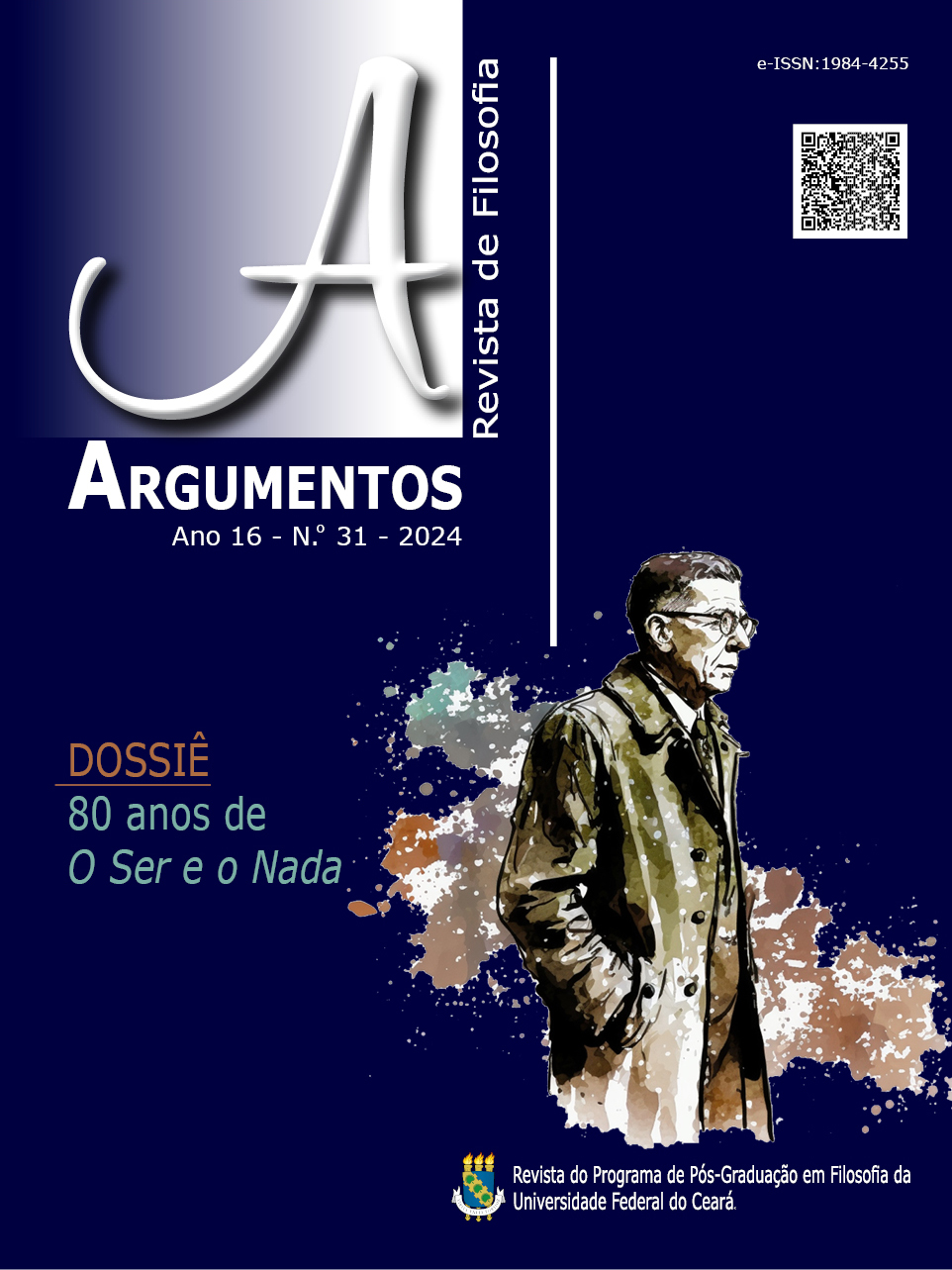The facticity of the for-other from the perspective of gaze and shame
DOI:
https://doi.org/10.36517/Argumentos.31.6Keywords:
Other. Solipsism. Look. Shame. Sartre.Abstract
This article aims to understand the primordial experience of the existence of the Other, presented by Jean-Paul Sartre in the third part of Being and Nothingness. In order for our intention to be effectively understood, we have organized this reading into three duly articulated moments. In the first moment, it is essential to clarify how the French philosopher delimited the problem of solipsism as an obstacle constituted by realist and idealist philosophies that generally deny the conditions of possibility for the existence of the other, as well as the critical description that questions the permanence of solipsistic theories in contemporary times, bequeathed by Husserl, Hegel and Heidegger. From this critique, we will lead our reading to the second moment, which consists of establishing an understanding of the existence of the Other, showing how it appears and affects the subject’s daily life, above all because the Other requires the presence of a body and a consciousness that is distinct from the subject’s. In the last moment, we will emphasize the interesting approach to the gaze and shame, this original feeling that strips the consciousness of any certainty that it is isolated in the world. Thus, the experience of shame comes to be understood as the unveiling of the subject’s consciousness, which perceives itself as “invaded” by the gaze of the Other, thus making the Other’s existence in the concrete relationship effective.
References
DANTO, Artur. As ideias de Sartre. São Paulo: Cultrix, 1975.
FLAJOLIET, Alain. La première philosophie de Sartre. Paris: Honoré Chapion Éditeur, 2008.
GILES, Thomas. História do existencialismo e da fenomenologia. São Paulo: EPU, 1989.
GONZÁLEZ PORTA, Mário Ariel. Edmund Husserl: psicologismo, psicologia e fenomenologia. São Paulo: Edições Loyola, 2013.
MARIETTI, Angèle Kremer. Jean-Paul Sartre et le désir d’être – Une lecture de l’Être et le neant. Paris: L’Harmattan, 2005.
MORAVIA, Sergio. Sartre. Trad. José Eduardo Rodil. Lisboa: Edições 70, 1985.
RENAUT, Alain. Sartre, le dernier philosophe. Paris: Éditions Grasset & Fasquelle, 1993.
SARTRE, J.-P. L’être et le néant: Essai d’ontologie phénoménologique. Paris: Éditions Gallimard, 2010.
SARTRE, J.-P. O ser e o nada: ensaio de ontologia fenomenológica. Trad. Paulo Perdigão. Petrópolis: Vozes, 2015.
Downloads
Published
Issue
Section
License
Argumentos magazine is licensed under an International Creative Commons Attribution License.
The Magazine uses CC BY inclusion
1) The authors retain the copyright granted to the magazine or the right to initial publication, with the work regularly licensed under the Creative Commons Attribution, which allows the sharing of the work with acknowledgment of authorship and initial publication in this magazine.
2) The authors are authorized to contract additional applicable contracts, for non-exclusive distribution of the version of the work published in this journal (for example, publication in the institutional repository or as a chapter of the book), recognition of authorship and initial publication in this journal.
3) Authors are authorized and encourage to publish and distribute their work online (for example, in institutional repositories or on their personal pages) at any time before or during the editorial process, as they can generate productive changes, as well as increase the impact and reference of published work.




.jpg)










._._3.png)
1.jpg)
._._._.png)
